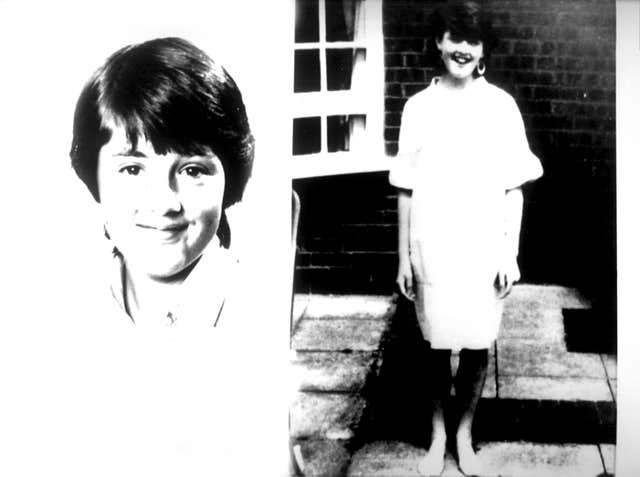The Justice Secretary is to ask the Parole Board to rethink its decision to allow the release of double child killer Colin Pitchfork.
Pitchfork, now in his early 60s, was jailed for life after strangling 15-year-olds Lynda Mann and Dawn Ashworth in Leicestershire in 1983 and 1986.
Following a hearing in March, the Parole Board said he was “suitable for release”, despite being denied parole in 2016 and 2018.

The Ministry of Justice (MoJ) said Robert Buckland would formally ask the board, which is independent of Government, to re-examine the decision, under the provisions of the so-called reconsideration mechanism.
In a statement the MoJ said: “Our heartfelt sympathies remain with the families of Lynda Mann and Dawn Ashworth.
“After a careful review, the Lord Chancellor will ask the Parole Board to reconsider its decision.”
The reconsideration mechanism, introduced in July 2019, allows people to challenge the board’s decision if they believe them to be “procedurally unfair” or “irrational”.
However, the provisions make clear that “being unhappy with the decision is not grounds for reconsideration”.
Mr Buckland said earlier this month he was taking advice on the matter and considering the case “very carefully”.
It is understood the intervention has been made on the grounds the board’s decision may have been irrational.
Once the MoJ’s application has been received – expected Monday, once all the victims’ families have been able to share their views – the board will have to decide whether its original decision to release Pitchfork can be formally reconsidered.
The threshold for reconsideration is high, and the same as is required for a Judicial Review.
South Leicestershire MP Alberto Costa, who said at the time he was “appalled” at the decision to release Pitchfork and has consistently campaigned against the killer’s release, welcomed the intervention, saying he was “delighted” with the move.
Pitchfork, who was in his 20s at the time of the attacks, became the first man convicted of murder on the basis of DNA evidence and was jailed for life at Leicester Crown Court in 1988.
Pitchfork pleaded guilty to two offences of murder, two of rape, two of indecent assault and one of conspiracy to pervert the course of justice. His minimum term was cut by two years in 2009.
He was sentenced to serve a minimum of 30 years.
Although he was denied parole in 2016 and in 2018, Pitchfork was moved to an open prison three years ago.
A document detailing the Parole Board decision said: “After considering the circumstances of his offending, the progress made while in custody and the evidence presented at the hearing, the panel was satisfied that Mr Pitchfork was suitable for release.”
The panel considered more than 1,100 pages of information, victim statements and heard evidence from Pitchfork, as well as his probation officers, police and a psychologist.
According to the document, at the time of his offending Pitchfork thought “about sex a lot”, used “violence and excessive force” and “sex to demonstrate power and control over women”.
He also struggled to cope with anger, loneliness and had a willingness to “seek revenge”.
During his time behind bars he has taken part in several courses to address his behaviour and the panel heard Pitchfork’s “behaviour in custody had been positive and had included extensive efforts to help others”, including learning skills to help disabled people, the document said.
Pitchfork’s release had been subject to strict licence conditions.
Conservative MP Mr Costa said: “I am delighted that the Lord Chancellor has agreed with me that the decision by the Parole Board was arguably incorrect and that the board should be invited to reconsider that decision.”
He added: “The reconsideration mechanism was introduced in Parliament in 2019 and that’s why I invited the Secretary of State for Justice to fire it back to the Parole Board, to reconsider the appalling decision they’ve taken to release the double child killer Colin Pitchfork.”
Mr Costa said: “Pitchfork’s egregious crimes cast a shadow over my constituency and are known throughout the country for the way in which he callously raped and horrifically murdered those two innocent teenage girls, Lynda and Dawn.
“The national outrage following the Parole Board’s decision a few weeks ago is proof that many people remain haunted by his abhorrent and heinous crimes.”
He added: “The board now has the final opportunity to get it right; it should listen very carefully to the vast majority of decent law-abiding people in our country and keep this vile sexual offending psychopath behind bars, where he belongs.”
It is understood the Parole Board will comment on the next steps in the process, once the Justice Secretary’s formal application has been received.”
